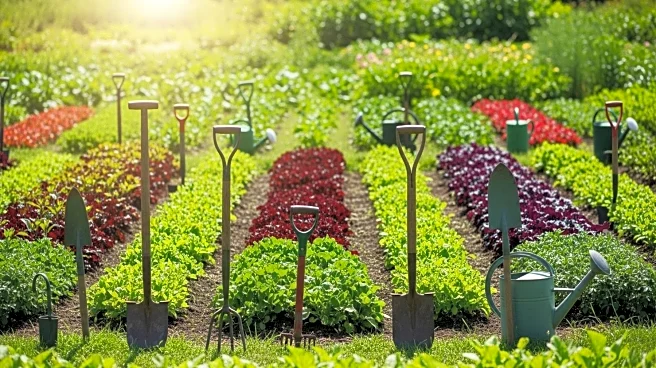What's Happening?
The Kwara government has pledged to enhance inclusivity in its agricultural programs by integrating People Living with Disabilities (PWDs) into planning, financing, and decision-making processes. Afees Abolore, the commissioner for agriculture and rural development, emphasized the state's commitment to ensuring that PWDs benefit from agricultural initiatives such as input distribution, capacity building, and empowerment schemes. This announcement was made during a meeting with the new executive of the Joint National Association of Persons with Disabilities (JONAPWD), Kwara chapter. The government aims to mainstream inclusivity across its programs, recognizing the vital role of women, youths, and PWDs in Nigeria's rural economy.
Why It's Important?
This initiative by the Kwara government is significant as it promotes equal opportunities and inclusivity for PWDs in the agricultural sector, which is a crucial part of the rural economy. By integrating PWDs into agricultural planning and support, the government is not only empowering a marginalized group but also enhancing the overall productivity and sustainability of the agricultural sector. This move could serve as a model for other states in Nigeria and beyond, highlighting the importance of inclusivity in economic development. The active participation of PWDs in agriculture can lead to increased food production and contribute to rural development.
What's Next?
The Kwara government plans to continue its support for PWDs by involving them in various agricultural value chains. The integration of JONAPWD into agricultural planning and decision-making is expected to be a continuous process, with further initiatives to enhance their participation. The upcoming International Day of Persons with Disabilities on December 3, 2025, will likely serve as a platform to showcase the progress made and discuss future steps. The government may also explore additional policies and programs to further support PWDs in agriculture and other sectors.
Beyond the Headlines
The Kwara government's initiative raises important ethical and social considerations regarding the inclusion of marginalized groups in economic activities. It challenges traditional perceptions and encourages a shift towards a more inclusive society where all individuals, regardless of their physical abilities, can contribute to and benefit from economic growth. This development may inspire similar actions in other regions, fostering a culture of inclusivity and equality.











